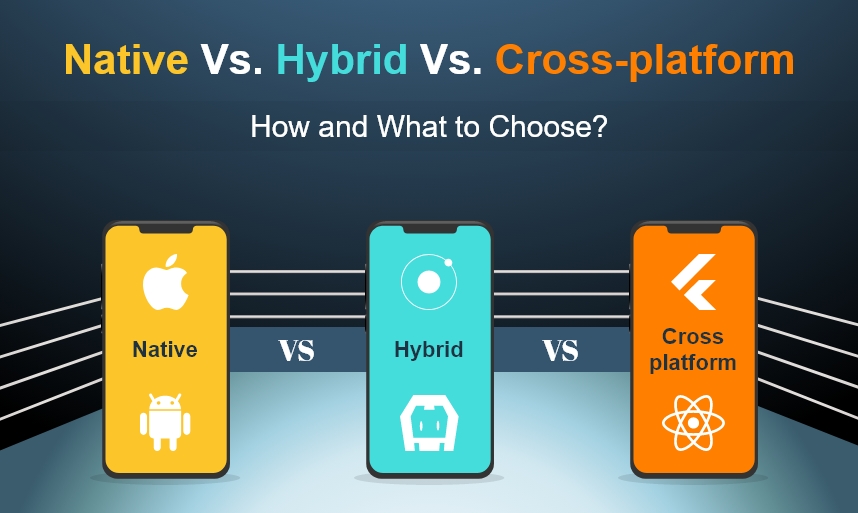Our lives have become restricted to digital possessions since the invention of technology.
We use the Internet and mobile apps to make the most important decisions in our lives and businesses.
It’s difficult for businesses to compete in the digital market. There are so many apps on the Play Store and App Store that have limited visibility, talents, resources, and money.
The yearly number of app downloads worldwide can reach 299 billion in 2023, up from around 247 billion in 2020.
Businesses are frequently dealing with a number of decisions, such as which technology to use, whether to go with iOS or Android. Which app development framework to use to increase client engagement.
We’ll go over the three major app development approaches in this blog: native, hybrid, and cross-platform.
What is a Native App?

Native app development refers to the process of creating programs or software that must run on certain devices and platforms, such as Android and iOS. Local app development relies on a programming language that is native to the operating system.
Java or Kotlin construct native Android apps, while Objective-C or Swift develop native iOS apps.
This is appropriate when you want to provide the best possible user experience in terms of the app’s look and feel.
Benefits of Native Apps
- Native mobile apps are speedier than hybrid and cross-platform apps because they don’t have as much complicated code. The majority of the app’s parts load quickly because they’ve been preloaded. Native applications are popular by startups due to their quick development time and low cost.
- One of the most notable advantages of native apps is that they work properly․ Users will benefit from this because they will be able to access all of the app’s features when in airplane mode or offline. This offline support option in native apps is critical for app users who live in places with poor internet connectivity, are in remote locations, or have limited data.
- Native apps can provide new entrepreneurs with a superior user experience.
Because native apps are designed for a certain operating system, they follow criteria that ensure a better user experience. Furthermore, native apps adhere to the rules, users may engage with the apps using gestures and activities that they are already familiar with. - When compared to a single codebase, such as in native app development, managing two different codebases becomes a difficult process. Because native programs have a single codebase and don’t rely on cross-platform tools, they have fewer issues.

When to Consider Developing a Native App?
- Your target audience will be using your app for the first time, and you want to make a first impression on them by providing the finest app experience possible.
- It’s necessary to write code that corresponds to a single platform.
- 3D games and animations are becoming increasingly popular among businesses.
- You want to attract a large number of DAUs and VC investors for product finance, as well as create an easy-to-use yet intuitive app.
- Device-specific features such as GPS, camera, and so on must be added.
Examples of Best Native App

Cons of Native App Development
- If you want to build native apps for iOS and Android independently, you’ll have to do the coding and develop the apps for both platforms. And, unlike hybrid mobile apps with shared backend code or cross-platform apps with a reusable codebase, this would take a lot of time, effort, money, and resources.
- Native app development has high maintenance costs, which are in addition to the development expenditures.
- Because native mobile apps are language-specific, finding developers who can develop native apps back-to-back becomes difficult. When it comes to native vs. cross-platform app development, you’ll need to employ two teams for native app development, but cross-platform app development only requires one team.
What is a Hybrid App?

Developers must embed code written in languages such as CSS, HTML, JavaScript inside a native app using plugins․
The back-end code and a native viewer that is downloaded to display the functionalities and the back-end are the two main components of the hybrid platform.
With hybrid app development, the code is just written once and may be reused across many platforms.
When creating a hybrid app, you can get performance and user experience that is comparable to native apps․
Benefits of Hybrid Apps
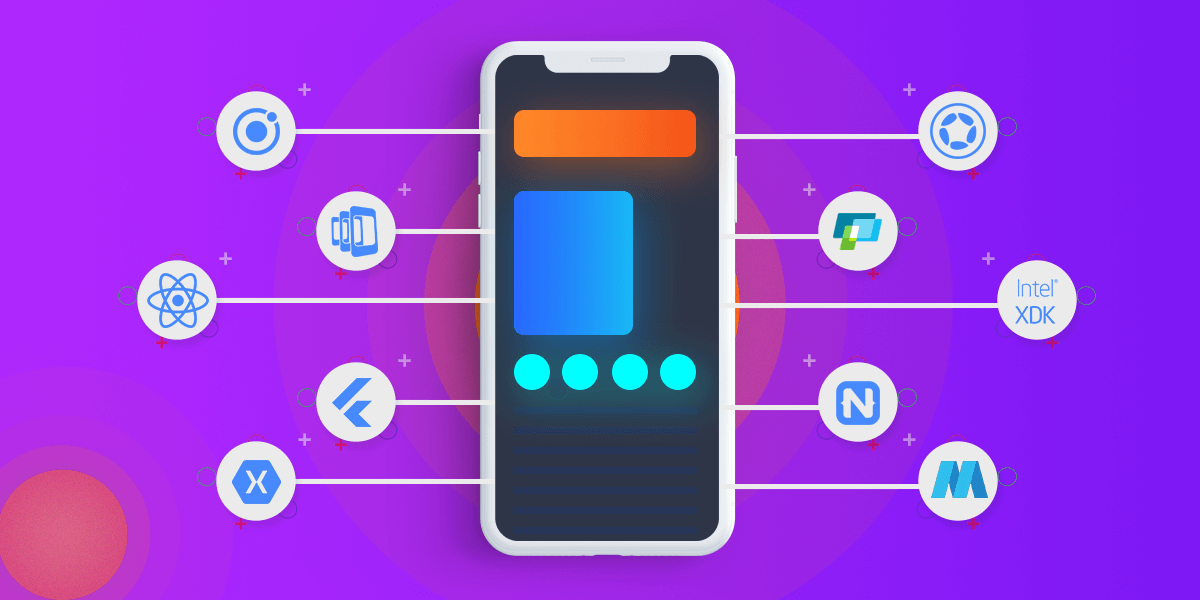
- A hybrid app development framework is the best option. It allows for speedy development and market launch of the app at a relatively early level.
- Because hybrid apps rely exclusively on web technology, they are easier to maintain than native and cross-platform apps, which need more complex development.
- Because unified development is accompanied by the hybrid app development lifecycle, startups with limited budgets can breathe a sigh of relief.
They don’t have to invest individually in developing distinct versions of apps for different platforms.
Developers can use hybrid app development frameworks to create a single version of an app.
- Hybrid apps combine the advantages of native and online apps while providing a consistent and improved user experience across Android and iOS platforms. The lightweight hybrid app UI allows for super-fast loading of images and content in hybrid app development.
When to Consider Developing a Hybrid App?
- We don’t have enough time to design a cross-platform solution, but we want to run the app flawlessly across multiple platforms.
- You intend to make a web app available in app stores.
- You’re aiming for a larger audience who uses the app on both the web and mobile devices.
- To test the project concept, create a Minimum Viable Product (MVP).
- You want to use the device’s native functions, such as GPS and camera.
Hybrid App Development Frameworks
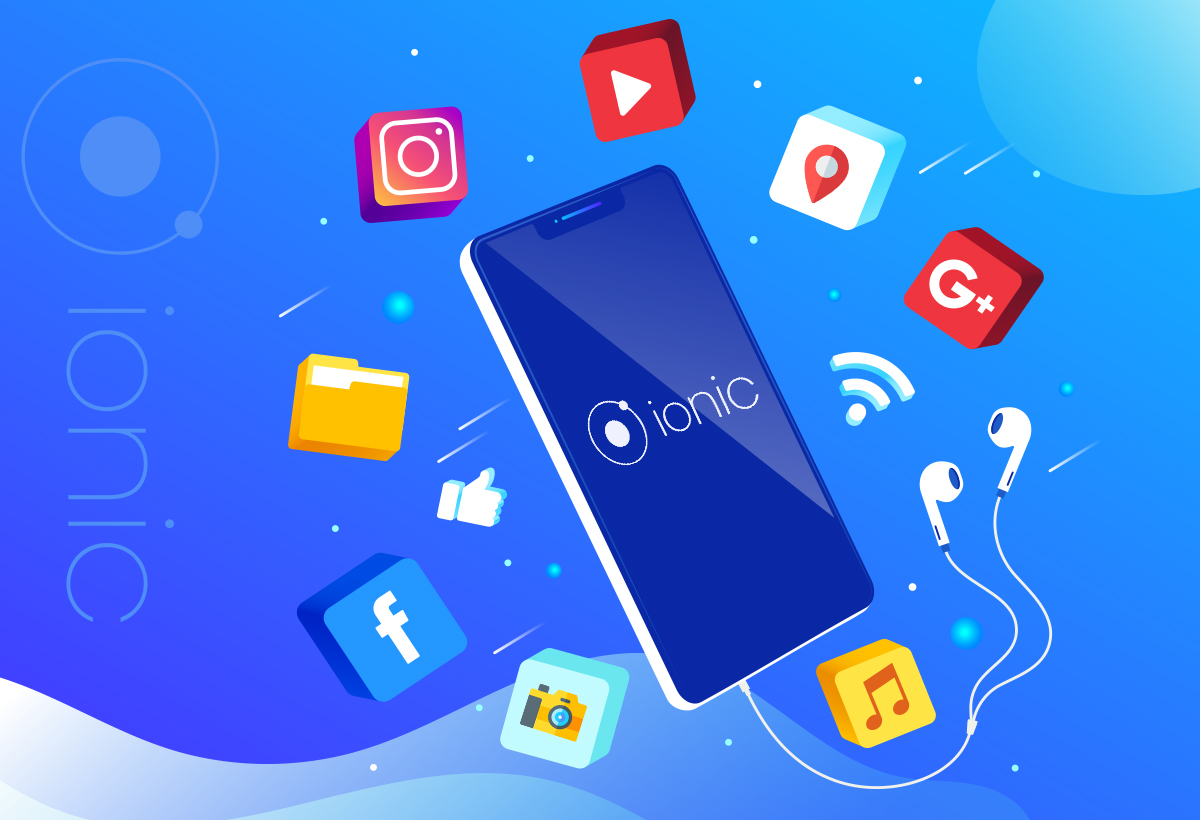
Cons of Hybrid App Development
- Hybrid apps don’t have the same offline capabilities as native apps. Users must wait for an Internet connection before using the app’s features.
- Because hybrid apps use a single piece of code, there are some features that are exclusive to one operating system that may not work perfectly on another, such as some Android-specific features that may not work on iOS devices.
What is a Cross Platform App?
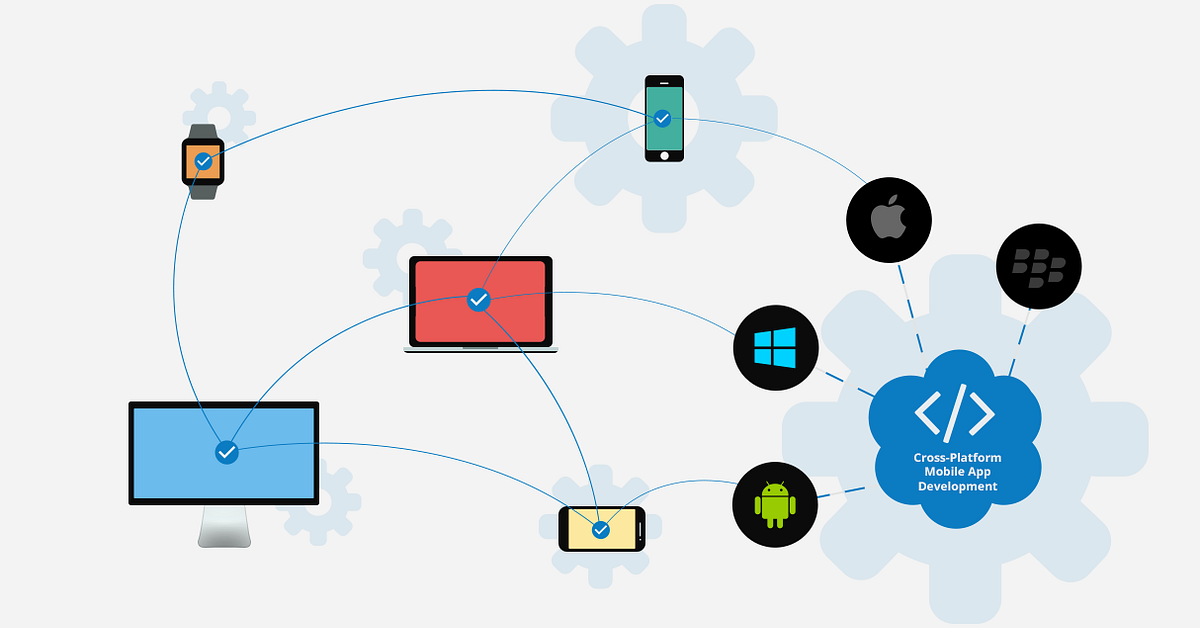
Let’s clear the air for budding entrepreneurs who think cross-platform app development and hybrid app development are the same thing.
Both cross-platform and hybrid app development have very distinct meanings and serve entirely different purposes.
The goal of cross-platform frameworks is to create shareable and reusable code for creating apps for several operating systems.
Writing code once and reusing it across various platforms cuts down on development expenses and time.
Cross-platform programs will offer easy deployment, dependable functioning, and low production costs.
With a cross-platform app development framework, however, don’t anticipate high performance or customisation.
The React Native, Xamarin, and Flutter frameworks have made cross-platform applications more popular in recent years.
Benefits of Cross-platform Apps
- In the long term, having reusable code backed by increased productivity and efficiency is a huge plus for developers and business owners.
A cross-platform app development framework has a competitive advantage over other options in this area. - Businesses may relax with perfect outputs because cross-platform app development uses a single codebase.
Because there is only one codebase, testing and deploying changes and updates is more easier, resulting in improved accuracy and higher quality mobile applications. - A cross-platform app development framework has the ability to support a wide range of platforms, ensuring a global market reach and greater brand popularity for new firms looking for quick momentum.
Furthermore, cross-platform apps save money up front. - Developers don’t have to write distinct code for each operating system when creating cross-platform programs. For migrating code between platforms, a common codebase might be used.
When to Consider Building a Cross-platform App?
- With a limited budget, time, and resources, you must deliver a mobile application on multiple platforms.
- You must target both iOS and Android app consumers.
- You require a more rapid app development process.
- The software isn’t complicated, and it doesn’t require many platform-specific features.
Examples of Best Cross-platform Apps
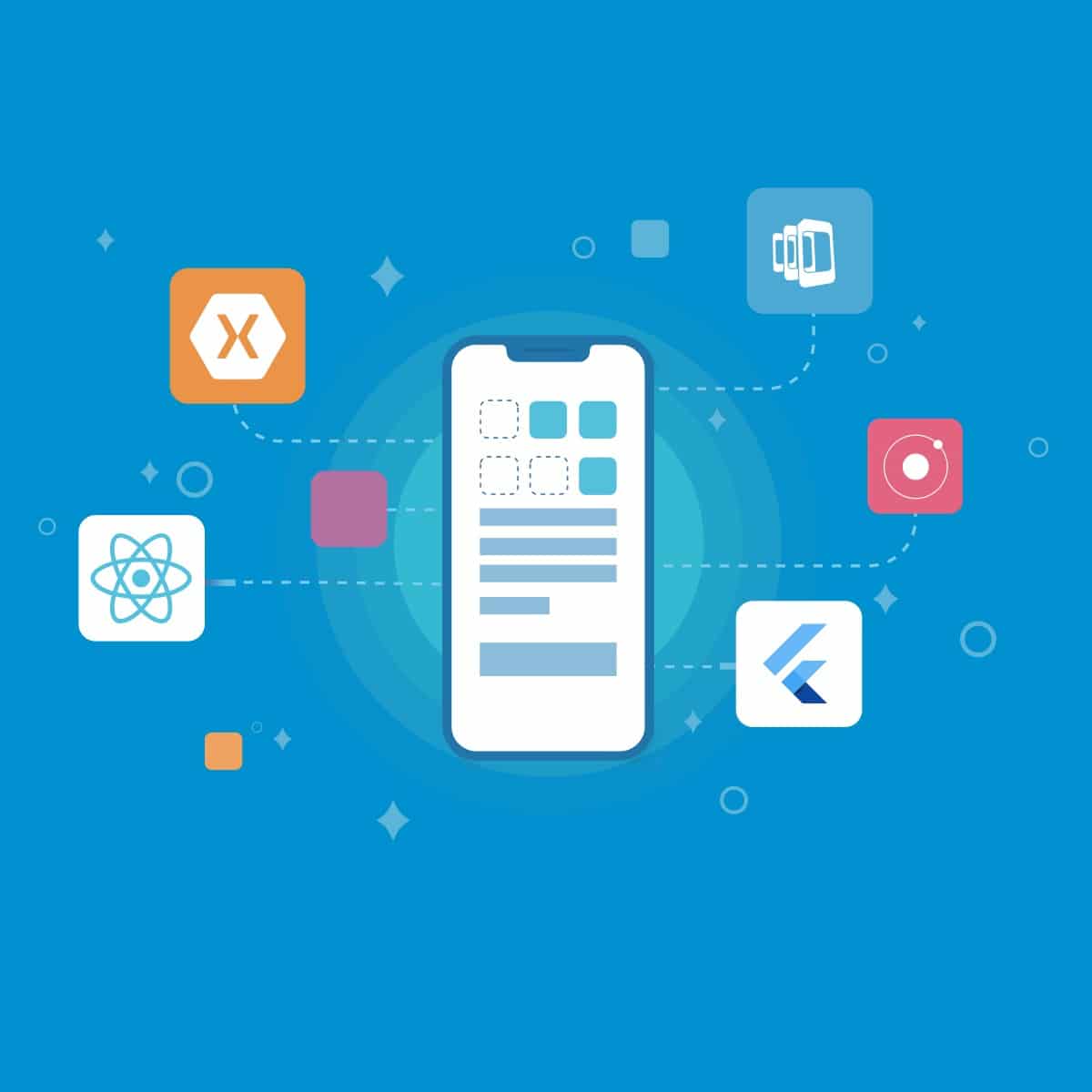
Cons of Cross-platform Apps
- For designing apps that can adapt to a few platforms, you’ll require a team of skilled developers.
When creating complicated functionality and interfaces, you’ll need to pay close attention to the tiny changes between operating systems and the hardware they run on. - Developers often find it challenging to integrate cross-platform apps to local settings and the code of HTML5 cross-platform apps is complex because of callback-style programming.
